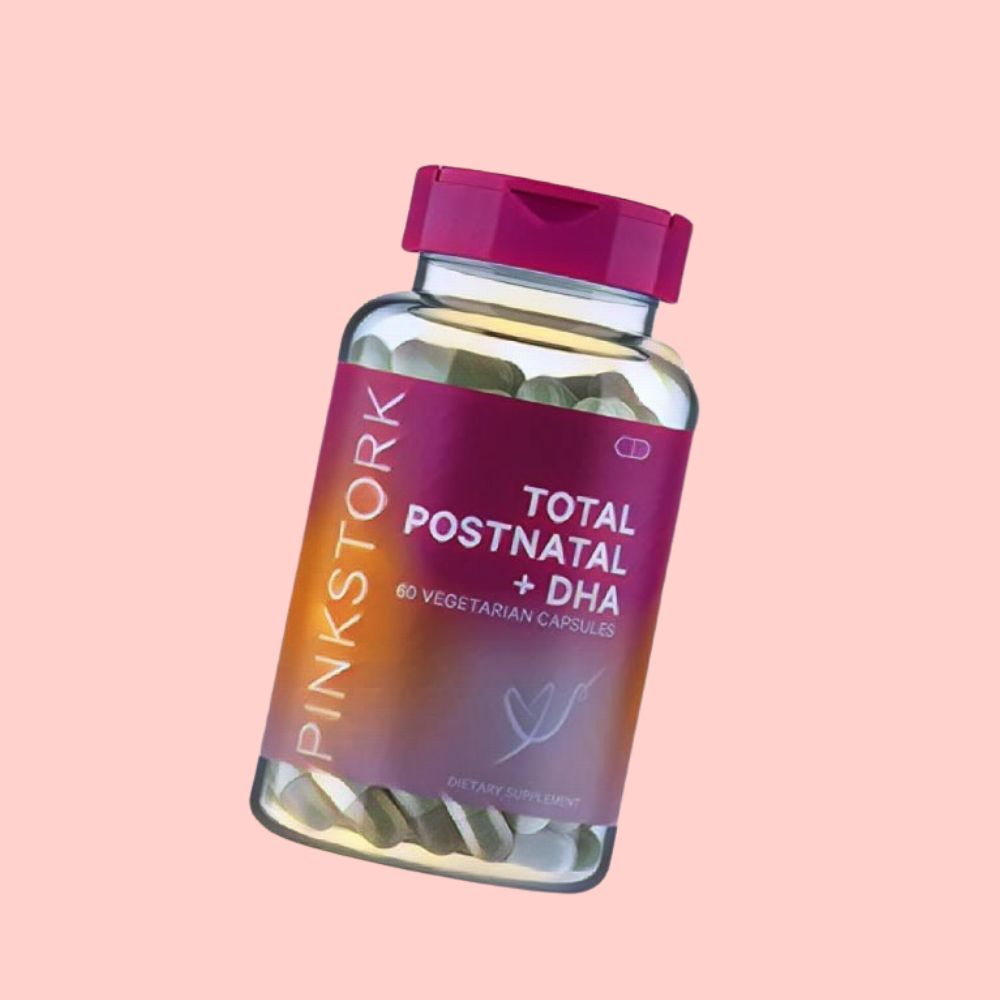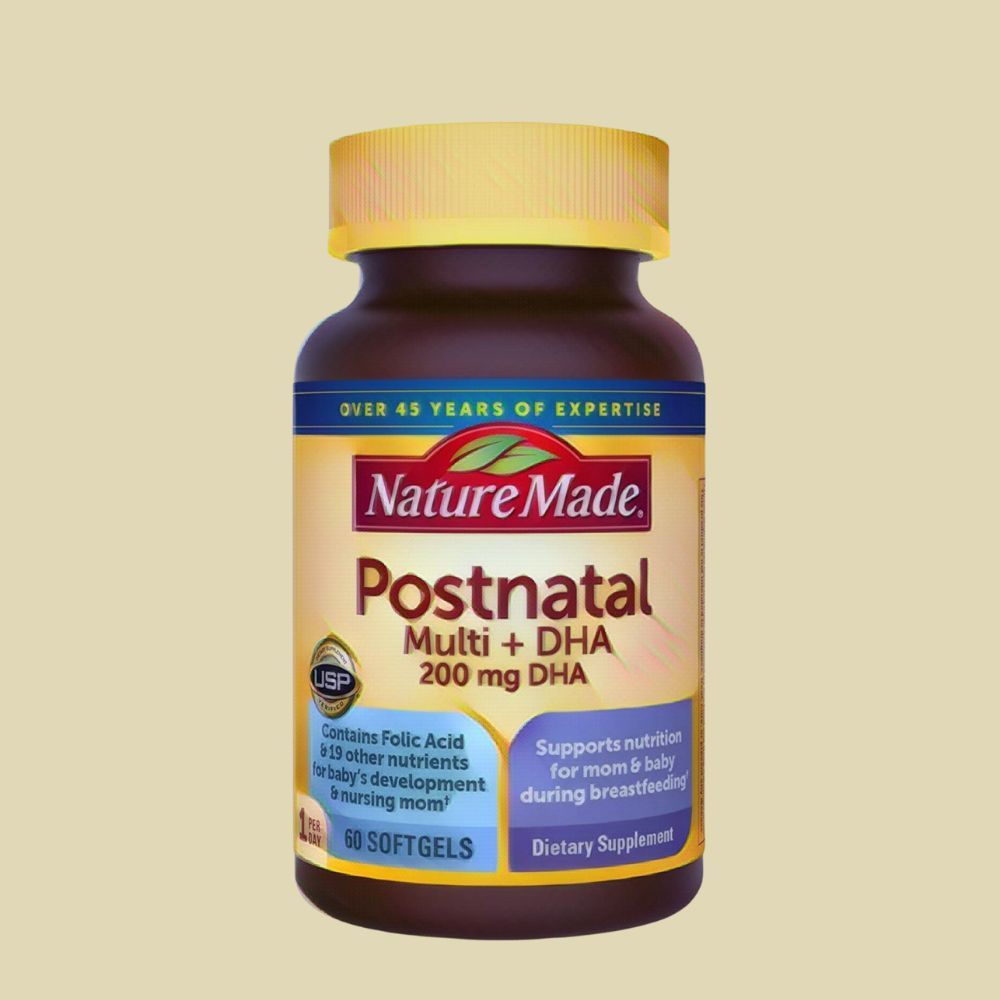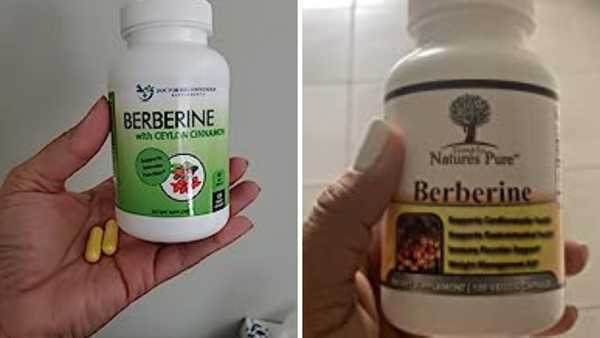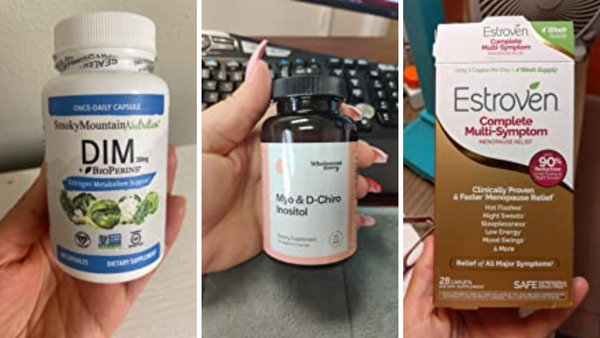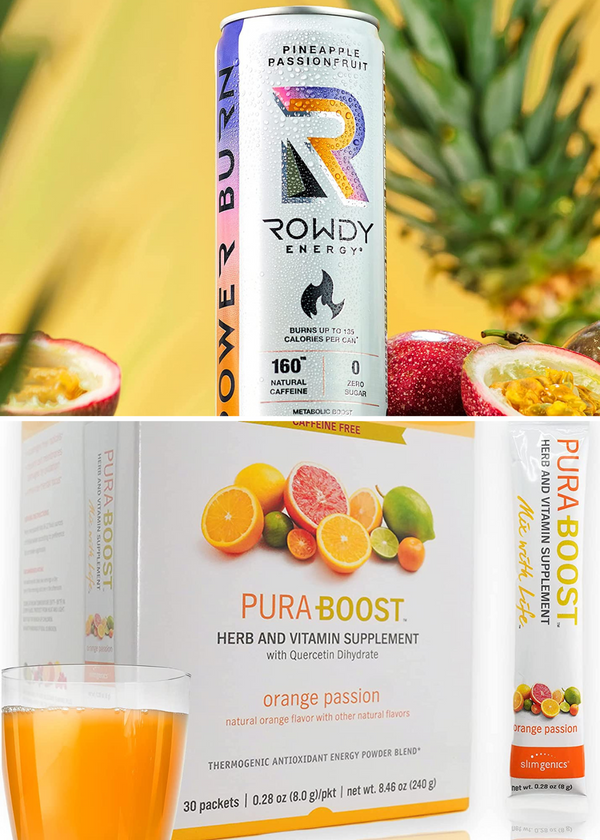Pregnancy is a joyous time for many women, but it can also be a time of stress and anxiety.
One thing that's often overlooked is the importance of postnatal vitamins.
These vital nutrients help to support both mother and child during the critical first few weeks after birth.
But with so many different products on the market, it can be hard to know which postnatal vitamin is right for you.
That's why we've put together this comprehensive review of the best postnatal vitamins on the market.
We'll help you understand the key differences between products, and we'll give you our top pick for the best postnatal vitamin overall.
We hope you find your next favorite thing from the list below! Each product was independently selected by our editors. Some may have been sent as samples for us to fiddle with, but all opinions in this article are our own. Oh, and FYI — LucksList may collect a share of sales or other compensation from the links on this page if you decide to buy something (that's how we stay in business). Reviews have been edited for length and clarity. Enjoy finding your next favorite thing!
How We Choose The Best For You
After giving birth, it can be hard to know where to start when it comes to taking care of yourself. You're tired, you have a new little one to take care of, and you probably don't even know what postnatal vitamins are.
It's no wonder that so many new moms feel overwhelmed after giving birth. There are so many things to think about and so many products on the market that promise to make your life easier. But which ones should you trust?
We've got you covered. Our team of vitamin experts have read thousands of reviews on Amazon to find the best postnatal vitamins for your needs. Whether you're looking for prenatal vitamins or supplements for nursing mothers, we've got something for everyone.
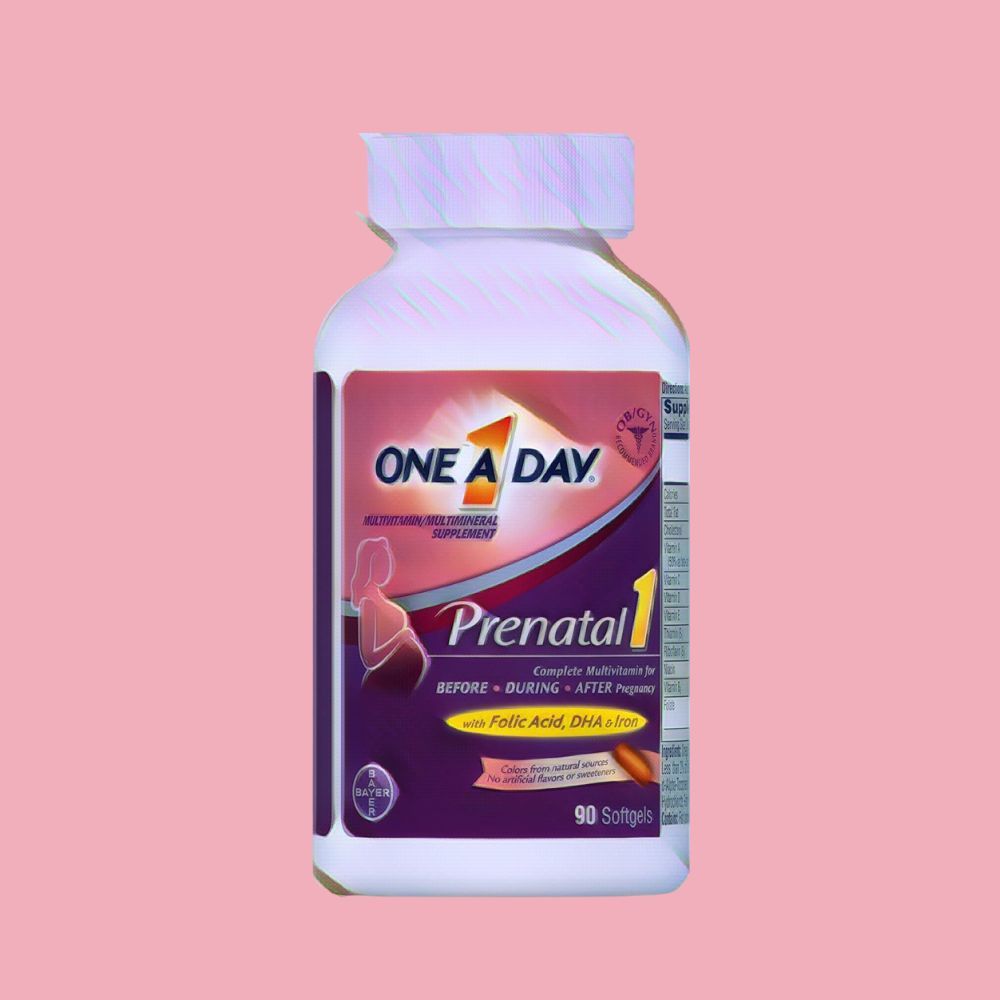
Best for Before, During, and Post Pregnancy
One A Day Women's Prenatal Multivitamin
Why We Love It
If you're like most women, you're always on the go. You juggle work, family and social obligations, and try to squeeze in a little time for yourself when you can.
It's no wonder that maintaining a healthy lifestyle can be difficult. But did you know that taking a multivitamin is one of the simplest and most effective ways to support your health?
One A Day Women's Prenatal Multivitamin is a complete prenatal supplement that has everything you need to support your health before, during and after pregnancy.
With key nutrients like folic acid, DHA, iron and calcium, all in one single soft gel, it's easy to get the nutritional support you need. And because it's from One A Day, you know you're getting a quality product that's backed by years of research.
What You Should Know
When it comes to prenatal vitamins, there's no one size fits all. One A Day Women's Prenatal Multivitamin is designed specifically for expectant mothers, and provides 100% of the daily value of folic acid.
This important nutrient helps to prevent birth defects, and the formula is free of gluten, artificial sweeteners, and artificial flavors. It's also dairy free, making it a great option for those with food sensitivities.
Plus, OBGYNs recommend the One A Day brand, so you can be confident you're getting a quality product.
Whether you're just starting to think about pregnancy or are already expecting, make One A Day Women's Prenatal Multivitamin part of your daily routine.
Why We Love It
Looking for a comprehensive postnatal vitamin to help with postpartum wellness, immunity, milk production, and energy levels? Look no further than Pink Stork Total Postnatal!
This doctor-formulated supplement is made without any gluten, wheat, dairy, sugars/sweeteners, soy, or GMOs. Plus, it's been third-party tested for quality and purity.
Just take 2 small capsules per day - it's that easy! With 60 vegetarian capsules in each bottle, Pink Stork Total Postnatal is a great 30-day supply. Don't wait - try it today!
What You Should Know
Welcome to parenthood! It's a beautiful, messy, sleep-deprived adventure that comes with lots of challenges - and we're here to help.Our Total Postnatal supplement is designed to support you through those early weeks and beyond.
It includes all the essentials like Folate, vegetarian DHA, B Vitamins, Iron, Zinc, + more to fully support your postnatal needs. And it's all from a women-owned and operated company!
Our founder and CEO is a woman, and over 80% of our employees are women. We are on a mission to provide women with hope and positively impact everyone that comes in contact with Pink Stork.
We know that the journey into motherhood can be tough, but you're not alone. We've got your back - and your belly - covered.
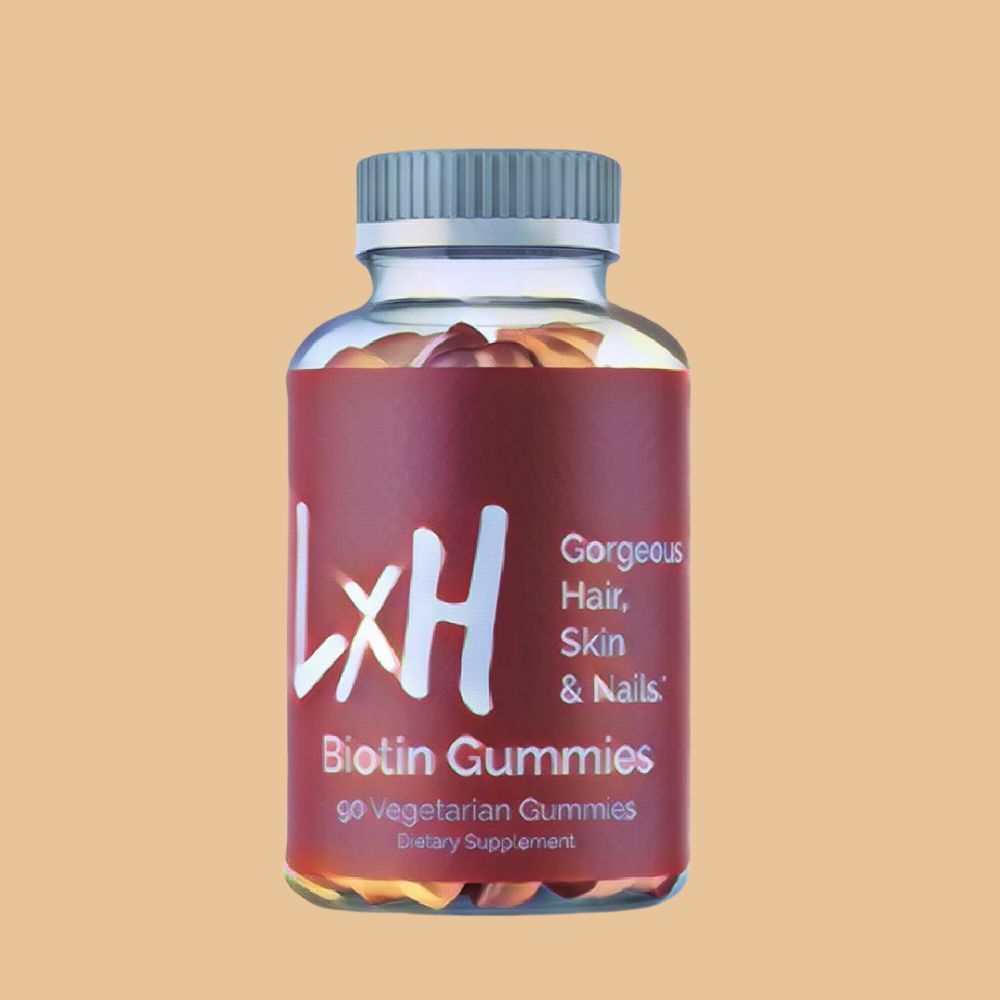
Best for Optimal Wellness, Positive Mood, Healthy Metabolism
Nordic Naturals Postnatal Omega-3
Why We Love It
Nordic Naturals Postnatal Omega-3 is an award-winning supplement that provides essential nutrients for both mother and child.
The 456 mg of DHA in each serving helps to support your nursing baby's neurological development, while the 586 mg of EPA can help to improve your mood and metabolism.
The unique formula of this omega-3 supplement allows for better absorption and prevents those pesky fishy burps.
What You Should Know
Being a parent is hard enough - you shouldn't have to worry about the quality of your omega-3s. That's why Nordic Naturals only uses the freshest, wild-caught fish in their products.
And they're committed to using only non-GMO, gluten- & dairy-free ingredients with no artificial colors or preservatives. So you can focus on being the best parent you can be, knowing that you're giving your family the best possible nutrition.
Nordic Naturals is also at the forefront of sustainable & ethical practices in the natural products industry.
So you can be confident that you're not only getting the best possible omega-3s, but you're also supporting a company that is committed to making a positive impact on the world.
Why We Love It
As a new mom, you want what's best for your baby. And nature made Nature Made Postnatal Multivitamin with 20 key nutrients just for baby and mom.
This postnatal multivitamin is formulated with essential vitamins and minerals to provide nutritional support for mom and baby during breastfeeding.
Plus, it contains higher amounts of vitamins A, C, D and E compared to our Prenatal Multi + DHA to meet increased demands during this unique period of life.
So you can feel confident that you're doing everything you can to support your little one's development.
What You Should Know
Being a parent is hard work. You're responsible for another human being 24/7, and it seems like there's always something that needs to be done. Whether you're dealing with a screaming baby in the middle of the night or a tantrum-throwing toddler in the middle of the grocery store, it can be tough to keep your cool.
That's why it's important to take care of yourself, too. And one way to do that is by taking a Nature Made Postnatal Multivitamin every day. Each serving provides essential vitamins and minerals, including Vitamins A, C, D3, E, K, and all 8 B vitamins.
Plus, it includes DHA, Iron, Calcium, Iodine, Magnesium, and Zinc. So pop a Nature Made Postnatal Multivitamin every day, and you'll be sure to get the nutrients you need to keep up with your little one.
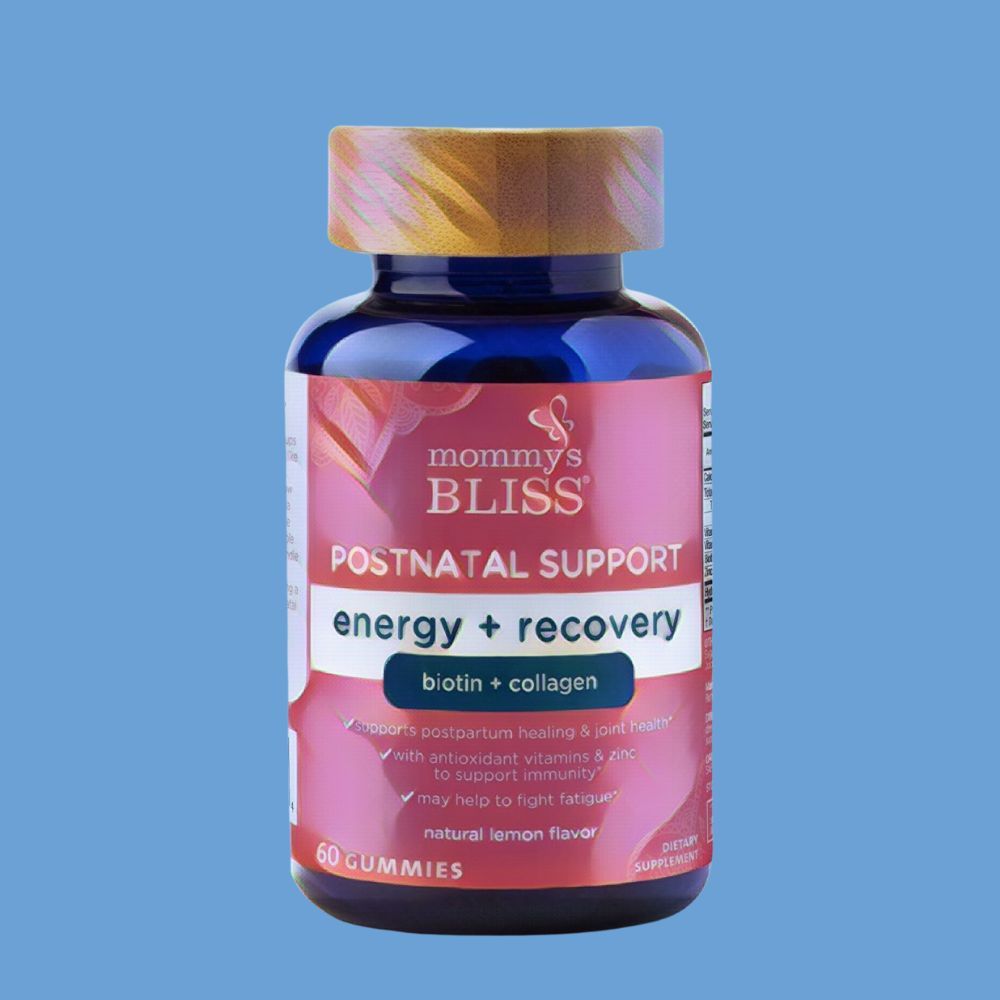
Best for Postpartum Energy, Healing & Joint Health
Mommy's Bliss Postnatal Support Energy
Why We Love It
Mommy's Bliss Postnatal Support Energy is here to help you recharge after the tough work of childbirth!
These delicious gummies are formulated with Biotin and Collagen to help support your postpartum recovery, joint health, and energy levels.
So go ahead and indulge in a few extra gummies - your body deserves it!
What You Should Know
Being a new mom is tough - you're constantly running around after your little one, with little time for yourself. Mommy's Bliss Postnatal Support Energy is here to help, with a special blend of vitamins and minerals to support you and your baby.
Their delicious gummies are packed with essential nutrients, including Vitamin C for immunity, B vitamins for energy production, and zinc for cognitive development.
Plus, they're free of artificial flavors and colors, dairy, gluten, and soy.
So you can feel good about taking them - even if you can't find time for a nap!
Best Postnatal Vitamins FAQs
It can be hard to know what vitamins you need after giving birth, and even harder to find good postnatal vitamins that fit your needs.
After giving birth, it's incredibly important to make sure you're getting the right nutrients for both you and your baby. But with all the conflicting information out there, it can be hard to figure out what you need and where to find it.
We've done the research for you! Based on our expert findings, we've put together a list of the most frequently asked questions about postnatal vitamins and found the best answers for each one.
What Is the Best Vitamin to Take After Giving Birth?
There is no one-size-fits-all answer to this question, as the best vitamin to take after giving birth will vary depending on the individual's specific needs. However, some vitamins that may be beneficial for postpartum women include vitamin D, iron, and omega-3 fatty acids.
Vitamin D supplementation is particularly important for women who are deficient in this vitamin during pregnancy, as it can help to prevent postpartum depression and promote mother-infant bonding. Iron is also important for postpartum women, as many experience iron deficiency anaemia after childbirth.
Omega-3 fatty acids are beneficial for both mother and child, and can help to reduce the risk of postpartum complications such as perineal tearing.
Postnatal supplements that contain all of these nutrients are available, and can be a convenient way to ensure that you're getting everything you need after giving birth.
Prenatal and postnatal vitamins are very similar, but there are a few key differences that make postnatal vitamins specifically designed for postpartum women.
How Long After Birth Should You Take Postnatal Vitamins?
It's best to wait until your baby is at least six months old before starting them on vitamins.
The American Academy of Pediatrics recommends that all breastfed and partially breastfed infants receive a vitamin D supplement of 400 IU/day beginning in the first few days of life.
This should be continued until they start drinking enough fortified milk or formula to meet their vitamin D needs (usually around age 1). After that, if your infant is eating a varied diet, they usually don't need a vitamin supplement unless advised by their doctor.
All babies should start receiving solid foods at about 6 months old. Around this time, you can also begin giving them a multivitamin supplement specifically designed for infants. Look for one that has iron and is free of artificial colors and flavors.
Are Postnatal and Prenatal Vitamins the Same?
No, they are not the same. Postnatal vitamins are generally recommended for women who are breast-feeding, while prenatal vitamins are given to women who are pregnant or trying to become pregnant.
There are some similarities between the two types of vitamins, such as both containing folic acid, but there are also many differences. For example, prenatal vitamins tend to contain higher levels of certain nutrients like iron and calcium, which are important for a developing baby.
So, if you're thinking about taking either type of vitamin supplement, be sure to talk to your healthcare provider first.
Organic postnatal vitamins are made without the use of synthetic pesticides or fertilizers. They are also free of artificial colors, flavors, and preservatives.
Should I Take Prenatal Vitamins Postpartum?
Yes, you should take prenatal vitamins postpartum. There are a few reasons why this is important.
First, during pregnancy your body needs higher levels of certain nutrients than usual. Prenatal vitamins help ensure that you get these nutrients.
Second, it takes time for your body to adjust back to its normal nutrient needs after pregnancy. Taking prenatal vitamins postpartum can help bridge this gap and prevent deficiencies.
Finally, many women lose a significant amount of blood during childbirth. This can lead to iron deficiency anaemia, which is best prevented by taking iron-rich prenatal vitamins postpartum.
So overall, taking prenatal vitamins postpartum is beneficial for maternal health in multiple ways.
Postpartum hair loss is a common problem that affects many women after they give birth. It can be caused by hormonal changes, stress, and nutrient deficiencies.
Vitamin B-12 is essential for healthy hair growth, so taking a supplement that contains this vitamin can help to prevent postpartum hair loss.
What Vitamins Should You Take While Nursing?
There are a number of vitamins and minerals that are essential for nursing mothers. The most important ones include calcium, magnesium, vitamin D, iron, and zinc.
Calcium is necessary for the development of strong bones in both mother and child. Magnesium is important for muscle function and energy production. Vitamin D helps the body absorb calcium and is essential for healthy bone growth. Iron is necessary for the production of red blood cells, which carry oxygen to tissues throughout the body. And zinc supports immune system function.
Most nursing mothers can get all of these nutrients by eating a balanced diet with plenty of fruits and vegetables. However, if you are not getting enough from your diet, it is recommended that you take a prenatal vitamin supplement that contains these nutrients.
Gluten free postnatal vitamins are made without any ingredients that contain gluten. This includes wheat, barley, and rye.
Is It Necessary to Take Iron and Calcium After Delivery?
It is recommended that all women take a daily supplement of iron and calcium after delivery. This is especially important if you are breastfeeding, as you will need extra iron to support your own production of breast milk.
Nursing mothers need approximately 10 mg/day of iron Postpartum period is a time when the mother's body needs extra nutrients to support the healing process and to replenish any stores that were depleted during pregnancy and childbirth.
Iron and calcium are two essential nutrients that are often lacking in the diet, so taking a supplement can help ensure that you are getting enough of these vital nutrients.
Postnatal gummy vitamins are a type of supplement that contains all of the essential vitamins and minerals that new mothers need. They are designed to be easy to take and are usually very palatable, making them a good option for women who have trouble taking pills or capsules.
Does Vitamin C Increase Breast Milk?
Yes, it is a well-known fact that Vitamin C increases breast milk production.
When a woman is pregnant, her body begins to produce large amounts of the hormone prolactin. Prolactin is responsible for milk production in both pregnant women and women who are nursing.
Vitamin C helps to increase the levels of prolactin in the body, which results in an increased production of breast milk.
In addition, Vitamin C is also beneficial for the health of both the mother and baby because it helps to boost the immune system.
Vitamin E is another vitamin that is often recommended for nursing mothers. It helps to promote milk production and also has antioxidant properties that can help to protect the mother and baby from disease.
Do Postnatal Vitamins Help Milk Supply?
There is some evidence that postnatal vitamins may help increase milk supply. In a study of 66 women, those who took a multivitamin containing 400 micrograms of folic acid and 10 micrograms of vitamin B12 (both found in most prenatal vitamins) had a higher milk production than those who didn't take the supplements.
However, the amount of folate in most prenatal vitamins is much higher than the recommended daily dose for lactating women, so it's important to talk to your doctor before taking any postnatal vitamins.
Additionally, eating a healthy diet with plenty of fruits, vegetables, and whole grains is important for both mother and baby. Studies have shown that mothers who eat a healthy diet generally have higher milk production than those who don't.
How Long Should I Take Folic Acid After Delivery?
It is recommended that you take folic acid for at least a year after delivery. Folic acid helps to prevent birth defects and plays an important role in the development of your baby's brain and spine.
It is especially important that pregnant women and women who are trying to conceive get enough folic acid in their diet, as the nutrient can help to prevent major birth defects of the baby's brain and spine. But even after delivery, it's crucial to make sure you're getting enough folic acid in order to support your own health and the health of your child.
Many postnatal vitamins contain folic acid, but you may need to take a separate supplement if you are not getting enough from your diet or from your postnatal vitamin.
What Supplements to Avoid While Breastfeeding?
From my experience, there are three main categories of supplements to avoid while breastfeeding: those that can decrease milk supply, those that can cause digestive upset for baby, and those that can pass into breastmilk and potentially harm baby.
Decrease milk supply: Supplements like blessed thistle, fenugreek, and Brewer’s yeast can sometimes decrease milk supply. If you’re struggling with low milk supply, talk to a lactation consultant or doctor before taking any of these supplements.
Causes digestive upset: Some herbs, like peppermint and spearmint, can cause digestive upset for baby. If you’re taking these herbs in large quantities (like teas or capsules), it’s best to pump and dump for a few hours after taking them.
Breastfeeding moms should also avoid herbal teas that contain caffeine, as this can pass into breastmilk and cause fussiness and insomnia in baby.
Postnatal Vitamins Benefits
While many people focus on the importance of prenatal vitamins, it's just as important to continue taking vitamins during the postnatal period. Postnatal vitamins can help to improve energy levels, reduce stress, and promote healthy hair and skin.
In addition, they can also help to boost the immune system and increase milk production for nursing mothers. While there are many different brands of postnatal vitamins on the market, it's important to choose a reputable brand that contains high-quality ingredients.
Postnatal vitamins are an important part of postpartum care, and they can make a big difference in the health and well-being of new mothers.
Postnatal Vitamins Dosage
When it comes to postnatal vitamins, there is no one-size-fits-all answer. The proper dosage depends on a number of factors, including the mother's age, her diet, and her overall health. That said, most experts agree that the average woman needs between 400 and 800 micrograms of folic acid per day.
This nutrient is essential for the development of the baby's neural tube, and it helps to prevent birth defects. In addition, doctors recommend that women take at least 200 micrograms of iodine per day.
This mineral helps to support thyroid function and cognitive development. Finally, women who are breastfeeding need additional amounts of vitamin A, vitamin C, and vitamin D.
These nutrients help to support milk production and promote the health of both mother and child.
Postnatal Vitamins Side Effects
Any new parent will quickly learn that there are a dizzying array of products on the market designed to help keep babies healthy.
From strollers and formula to onesies and diapers, it can be hard to know what you really need and what you can safely skip.
One item that is generally recommended for all new parents, however, is a bottle of postnatal vitamins. These supplements are designed to help nursing mothers replenish their stores of nutrients, including iron, calcium, and folic acid.
While postnatal vitamins are generally considered safe, there are a few potential side effects that new mothers should be aware of.
The most common side effect is gastrointestinal upset, including nausea, bloating, and constipation. In addition, some women may experience skin irritation or headaches.
Fortunately, these side effects are usually mild and temporary. If you experience any severe or persistent side effects, be sure to speak with your healthcare provider.
What’s The Best Postnatal Vitamin Supplement For You?
So, what are the best postnatal vitamins?
Read through the reviews on Amazon and see for yourself why these vitamins have earned such high marks from happy mothers. And if you decide that one of our other top picks is a better fit for your needs, be sure to check them out too!
Thanks for following along with us on this journey to finding the perfect postnatal vitamins.
We hope you find what you're looking for and that these supplements help bring you optimal wellness during this special time in your life.
And if you need help picking the right product, here you go!
Best for Before, During, and Post Pregnancy
One A Day Women's Prenatal Multivitamin
Best Baby, Prenatal Vitamins for After Baby
Pink Stork Total Postnatal
Best for Optimal Wellness, Positive Mood, Healthy Metabolism
Nordic Naturals Postnatal Omega-3
Best for Moms & Babies During Breastfeeding
Nature Made Postnatal Multivitamin
Best for Postpartum Energy, Healing & Joint Health
Mommy's Bliss Postnatal Support Energy
We hope this article has helped make your decision easier and that you enjoy your new postnatal vitamin supplement!


